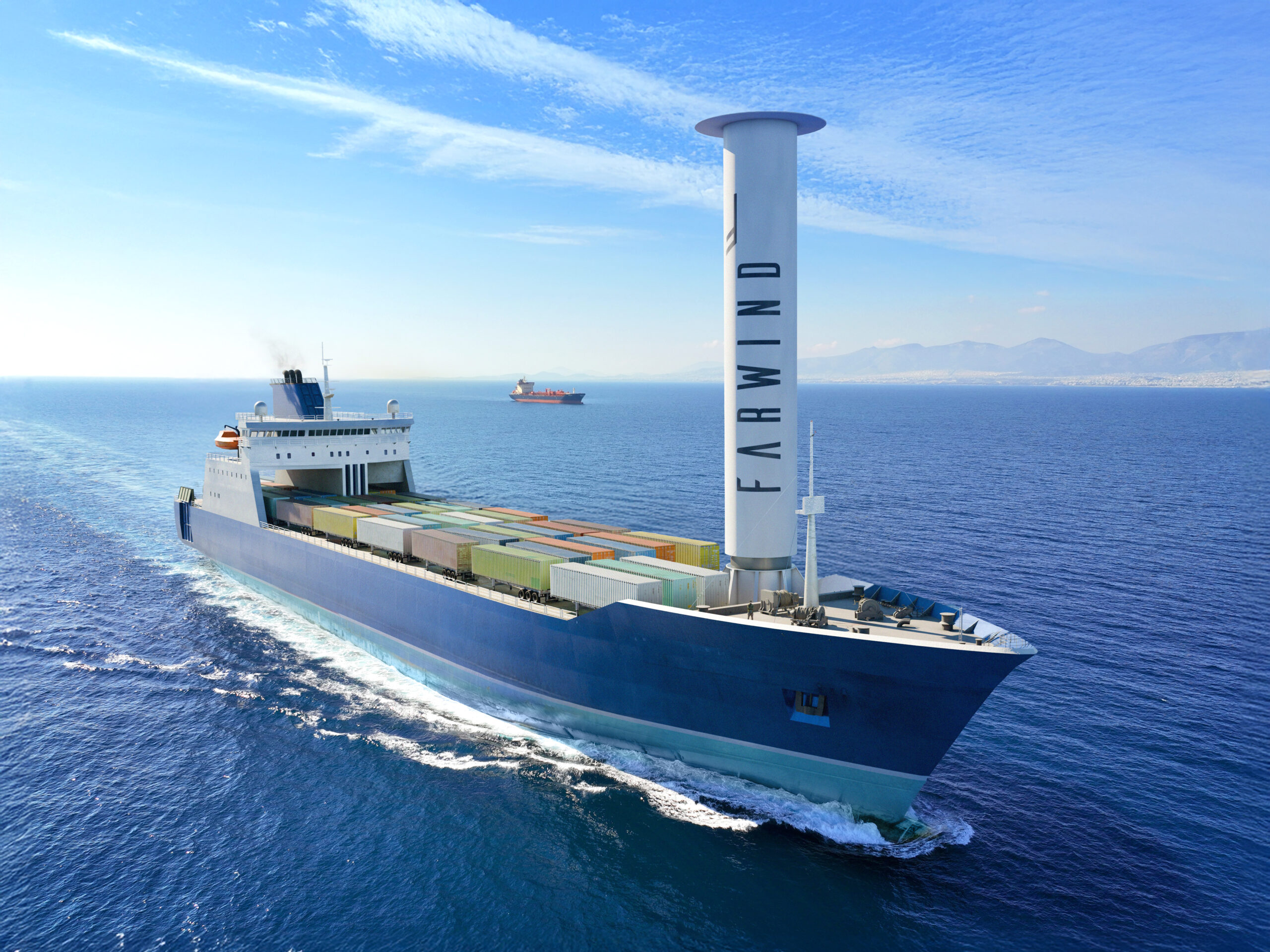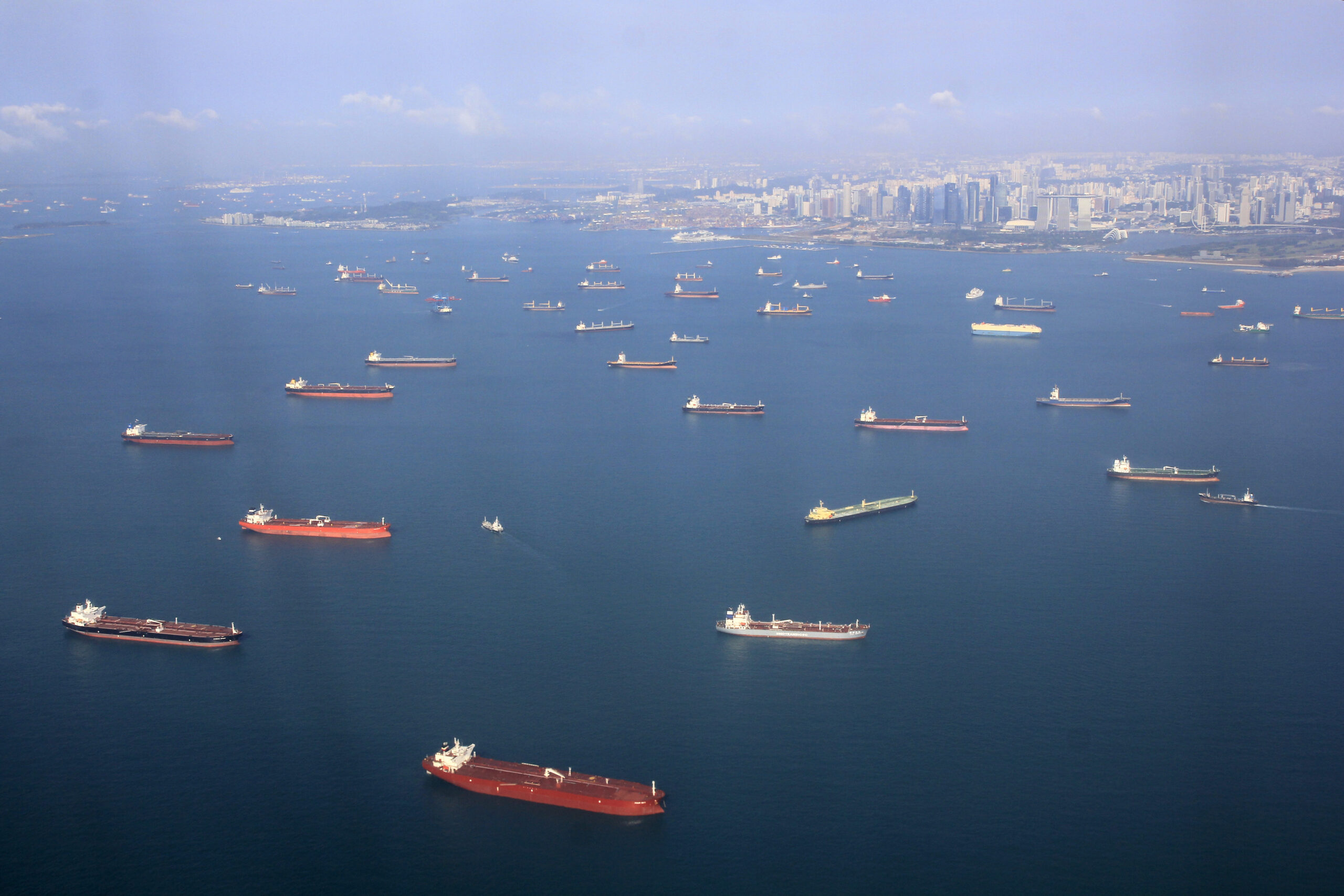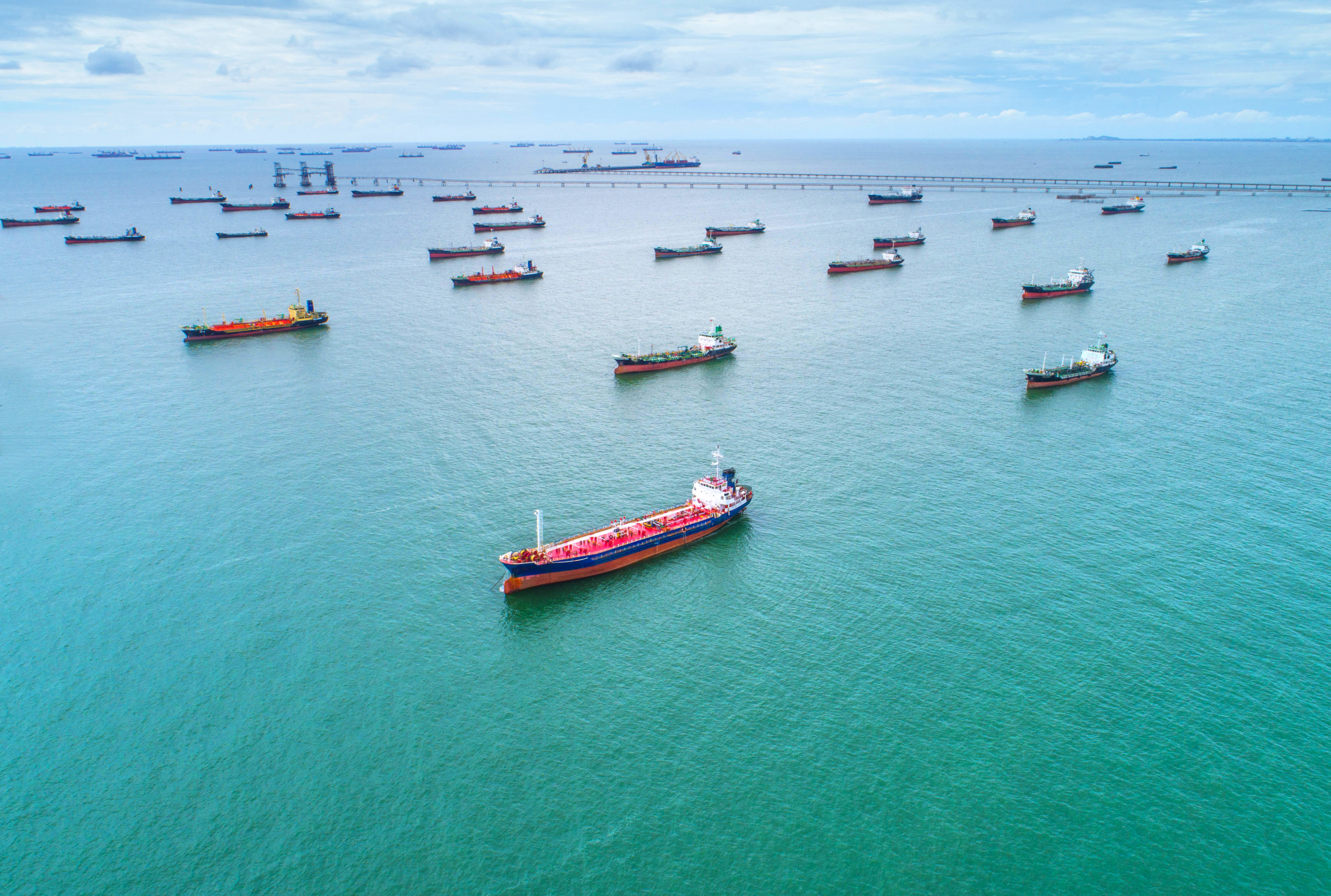
Decarbonizing maritime transport
we are pioneering MARITIME DECARBONIZATION
The ecological transition of maritime freight transport is a major challenge. That’s why we created FARWIND ENERGY, the pioneering company for solutions for maritime decarbonization.
FARWIND ENERGY works on the decarbonization of maritime transport through:
- Improving the operational efficiency of ships with its rotor sails
- The production of alternative energy sources, with hydrogen or electrofuel production at sea.
why decarbonize maritime transport?
A moral necessity
Like all other modes of transport that burn hydrocarbons, ships generate air pollution that harms air quality, affects human health and contributes to the large-scale effects of climate change.

A regulatory obligation
In April 2018, the International Maritime Organization adopted an initial strategy for reducing GHG emissions from ships, revised in July 2023 with a view to getting the shipping industry to commit to carbon neutrality by 2050.

A business opportunity
Looking to reduce your environmental footprint can be a source of profitability for your business, by reducing your energy costs while supporting your commercial growth.
A MORAL necessity
Although essential to the global economy, the shipping industry is a major source of air pollution. If nothing is done, its emissions are set to rise even further, as global maritime traffic expands in the coming years.
If no additional measures are taken and implemented, greenhouse gas emissions from ships could increase by 90% to 130% of 2008 emissions by 2050.
AREGULATORY OBLIGATION
The International Maritime Organisation’s strategy identifies checkpoints for monitoring progress, including :
- Reduce CO2 emissions by at least 40% by 2030
- Reduce total annual GHG emissions by 70-80% by 2040
- Increasing the use of alternative fuels with zero or near-zero GHG emissions to 5-10% of energy used by 2030.
The IMO has implemented a phased approach to reducing NOx emissions from new ships…
A BUSINESS OPPORTUNITY
Developing sustainable alternative fuels and maximizing the energy efficiency of ships are among the key challenges in maritime decarbonization.
Fuel accounts for around 1/3 of the operating costs of individual ships, and future sustainable fuels are likely to be 3 to 5 times more expensive. So we need to push ship energy efficiency to the limit.
Farwind Energy solutions enable the development of greener, more economical fleets.
Who we are
FARWIND is a spin-off of Ecole Centrale de Nantes, one of the world-leading university for marine renewable energy research. As such, at FARWIND, we face reality with an open mind and trust in Science. That’s why acting for climate is one of our core values.



